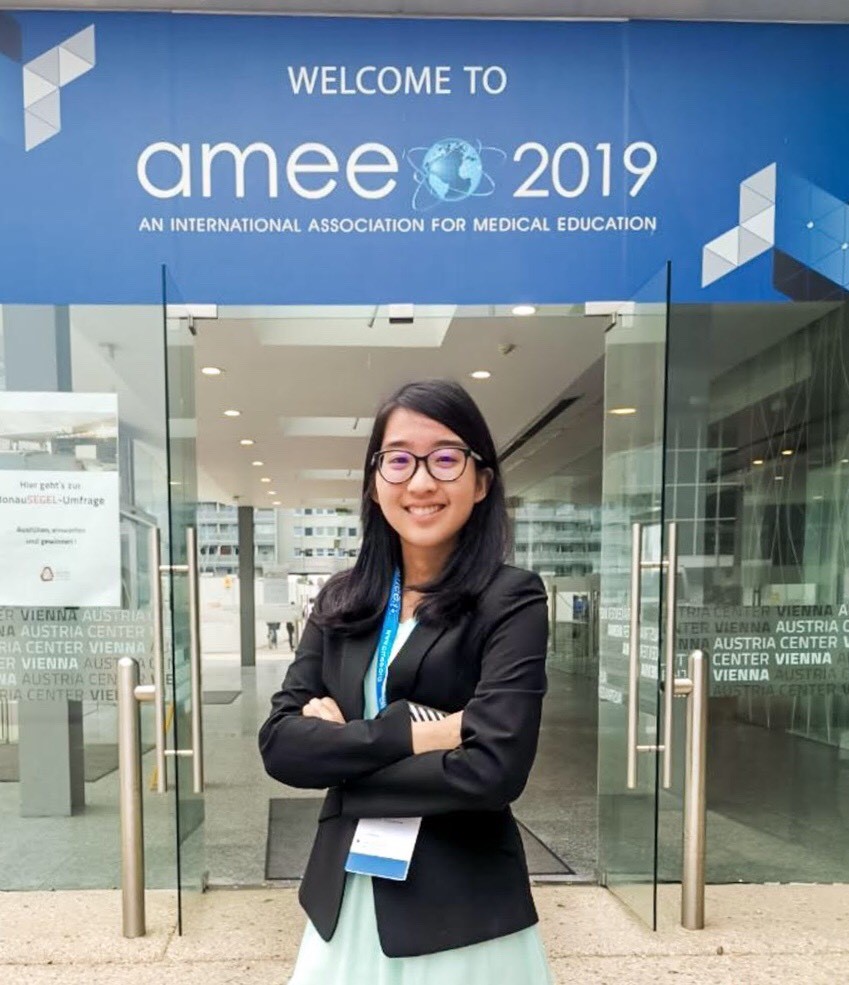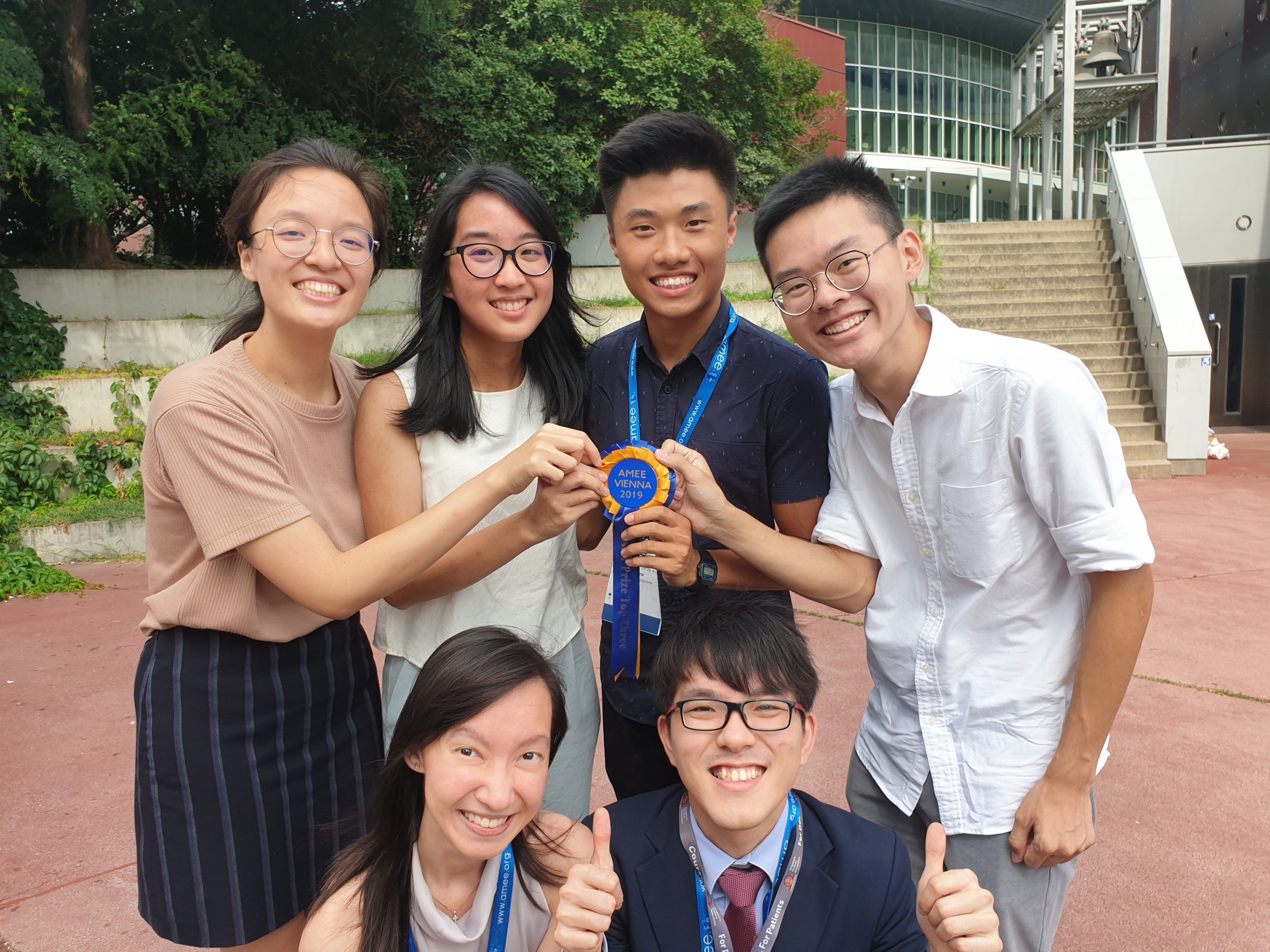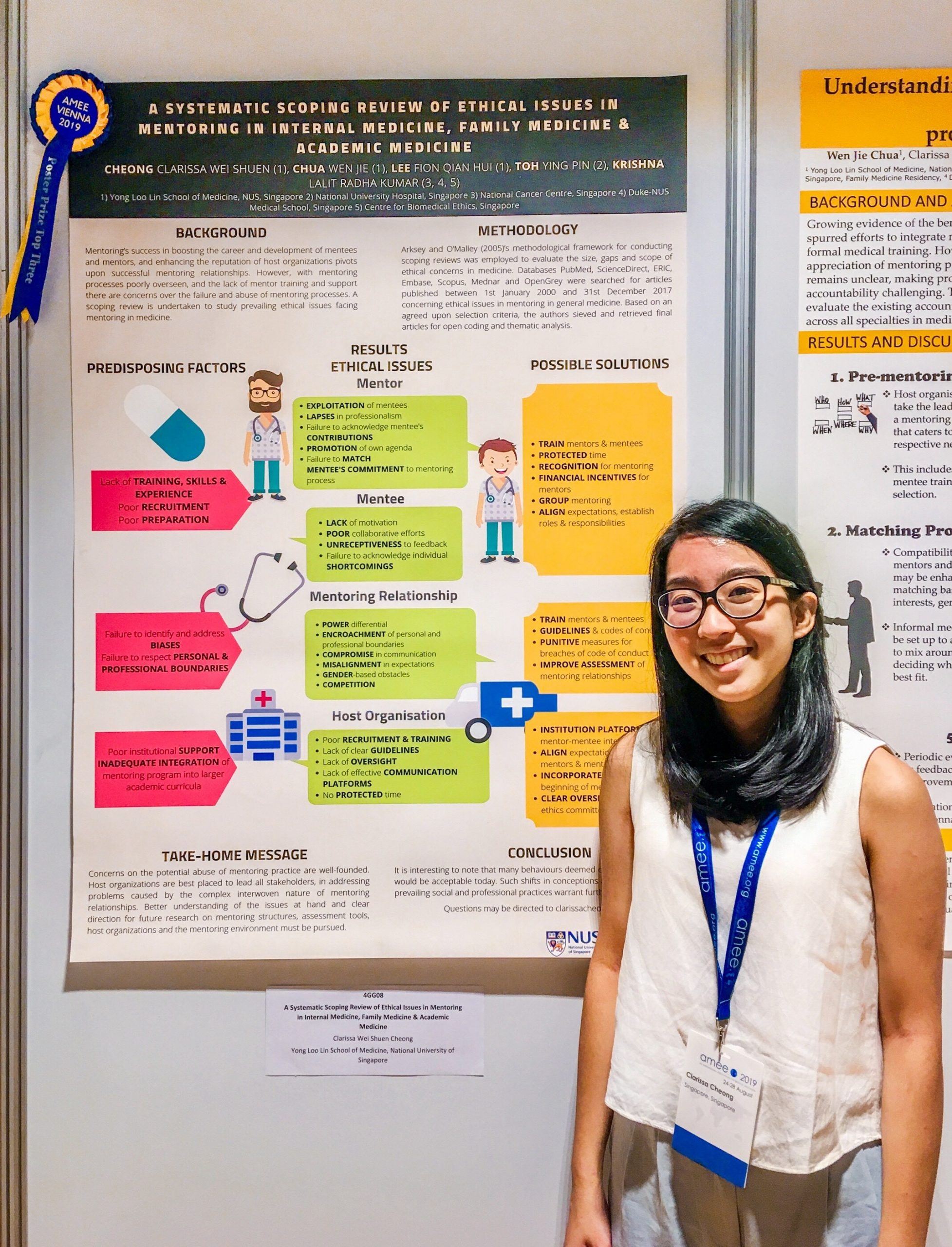How Doctors Are Teachers Too

Humbled, grateful and pleasantly surprised — this was how Phase III student Clarissa Cheong felt when she not only earned an opportunity to present her research on mentoring in Medicine at the annual Association for Medical Education in Europe (AMEE) Conference, but also took home a prestigious Medical Teacher Poster Prize. Follow her journey and find out what her main takeaways were from this experience.
 Clarissa (top row, 2nd from the left) along with her team mates and seniors; (top row, from left) Tan Shien Ru, Chua Wen Jie, Chester Tan, (bottom row, from left) Elishia Chia and Tay Kuang Teck
Clarissa (top row, 2nd from the left) along with her team mates and seniors; (top row, from left) Tan Shien Ru, Chua Wen Jie, Chester Tan, (bottom row, from left) Elishia Chia and Tay Kuang Teck
The term doctor has its origins in the Latin word “docere”, which means “to teach”.
Before entering medical school, Clarissa never really understood what others meant when they say that when one becomes a doctor, one becomes a teacher too. This changed when Clarissa became a medical student and saw how her seniors and professors imparted valuable knowledge to her and exposed her to various opportunities in medical research.
One such occasion was the opportunity to present her research on mentoring in Medicine at the AMEE 2019 Conference in August. She was recommended by her mentors Associate Professor Lalit Krishna, Senior Consultant, Division of Supportive and Palliative Care, National Cancer Centre; and Dr Ann Toh, Resident, Family Medicine, National University Health System. The annual AMEE Conference is an international medical education conference where educators and learners come together to promote excellence in healthcare education.
“I didn’t expect to get in at first given the low acceptance rates to the conference but somehow, I did!” said Clarissa. With constant guidance from her mentors throughout the process, not only did Clarissa earn her chance to present her poster, titled, “A systematic scoping review of ethical issues in mentoring in internal medicine, family medicine and academic medicine”, but she also led her team into the Top 3 to bag a prestigious Medical Teacher Poster Prize at the AMEE 2019 Conference. This prize was judged by a committee which comprised medical education experts from around the world.
Clarissa’s interest in the role of mentoring in medicine started when she was in Year 1—she chose to focus her research on ‘mentoring’ out of many other options as she felt that Medicine itself is a very teaching-and- learning centred discipline and practice. Realising that mentoring in Medicine today may be jeopardised by various ethical factors, e.g. abuse in mentoring relationships, Clarissa decided to embark on this project, studying various ethical issues that may arise from the mentoring relationship, in the hopes of enhancing the mentoring culture in Singapore.
Her research found that in a society like Singapore where most learn to be passive, resolving issues in a mentoring relationship could prove to be challenging: in order for the relationship to work, mentees have to take initiative to reach out to their mentors besides allowing themselves to be guided. It cannot be a one-way relationship. When asked if there were any surprising findings, Clarissa shared that she had always thought that one-to-one mentoring would be the best given the dedicated attention one could give to a mentee. However, this was not the case—she learned that group mentoring turned out to be more effective instead as it could reduce mentees’ fears of approaching their mentor.
 Clarissa gave a presentation on ethical issues in mentoring in internal medicine, family medicine and academic medicine at the AMEE 2019 Conference.
Clarissa gave a presentation on ethical issues in mentoring in internal medicine, family medicine and academic medicine at the AMEE 2019 Conference.
“I further saw the importance of mentorship as I continued on my journey writing the paper when my mentors, A/Prof Lalit Krishna and Dr Ann Toh, patiently gave me advice not only on the research but also on life in medicine.” For Clarissa, this experience has been a thoroughly enriching and exciting one and she is thankful for the opportunity to work with her mentors who have given her advice about life beyond research as well.
Having gained varied and novel perspectives from both her research and the conference, Clarissa encourages more students to go for such experiences and is motivated to do the same as those before her—to guide and teach juniors as a way of paying it forward.
